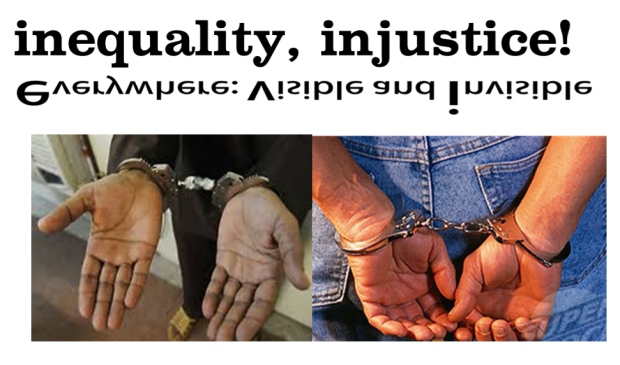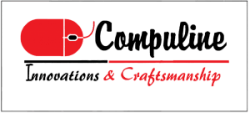YOUTH SOFT SKILLS AGAINST INJUSTICE
 This comment is motivated by Sharma’s article titled soft-skills in non-formal education: building capacities of the youth published in the Adult Education and Development Journal by dvv International. It is within the framework of the 2017 ICAE Virtual Seminar based on the journal issue on skills and competencies https://www.dvv-international.de/en/adult-education-and-development/editions/. While I admire and subscribe to the justification for soft skills as articulated by Sharma, I argue that the rather controversial blending of developing these skills within a critical pedagogy is paramount.
This comment is motivated by Sharma’s article titled soft-skills in non-formal education: building capacities of the youth published in the Adult Education and Development Journal by dvv International. It is within the framework of the 2017 ICAE Virtual Seminar based on the journal issue on skills and competencies https://www.dvv-international.de/en/adult-education-and-development/editions/. While I admire and subscribe to the justification for soft skills as articulated by Sharma, I argue that the rather controversial blending of developing these skills within a critical pedagogy is paramount.
Uganda just like India and many other developing economies is grappling with a huge population of unskilled young people. They are a generation of almost zero employment and zero descent quality of life due to the increasing unequal political, economic, education, trade and labour market patterns influenced by local and global forces. And as can be extrapolated from writings by Sharma and others, limited soft skills exacerbates the unemployability vulnerability of even the so-called educated young people from colleges and universities
Understandably education and training interventions to bridge the soft skills-gap are tailored to serve labour market interests whose neoliberal ideological orientations are inherently extractive. The tendency is to mould young people with the soft-skills to respect, uphold and perpetuate existing systems of generating, distribution and consumption of goods and services. Many times, non-formal and even formal education programmes emphasize soft-skills for maintaining political and socio-cultural systems that entrench inequality.
On one part I subscribe to Sharma’s description of soft skills in non-formal education; and indeed wish for an expanded list that includes personal management, dealing with bias and personal prejudices among others. On the other, I argue that non-formal education programmes particularly those located in the adult education tradition needs to reclaim the emancipatory or transformative purpose (Ledwith, 2011; Avis, 2016). This inevitably brings into context the notion of critical pedagogy as espoused by one of the great thinkers of our time, Paulo Freire (Freire, 1993).
The critical thinking that we are talking about should extend beyond good judgement within a bondage of dominant thinking. Young people are not just the future but the present drivers of our existence, I argue therefore that their package of soft skills ought to be blended to develop critical skills to interrogate power structure, policy and politics of our society. Young people’s critical consciousness of existing inequalities and all sorts of injustices may not necessarily subordinate job market skills but Africa’s long-term transformation agenda can only succeed if our young talents are truly influencing present and future history.
Our young generation must be supported to develop a deeper understanding of oppressive power bases, and to challenge social arrangements that perpetuate intergenerational poverty and its associated inequalities. For instance, dealing with repressive regimes and fake opposition is one critical thinking skill that young people in many African countries need to navigate manipulation and contribute to struggles for social justice and change. States and some sections of the civil society including the private sector design and implement youth employment or empowerment programmes that instead serve to silence, bribe or indoctrinate young people within a paternalism framework.
Education ought not to get trapped into false generosity and taking advantage of young people’s vulnerability created by unfair social systems. Non-formal education programmes should embrace democratic pedagogies to engage young people into real learning dialogues (Hope & Timmel, 1989). These emancipatory learning spaces can help young people to deepen their critical thinking skills to (i) identify valid political and economic arguments (ii) detect propaganda (iii) detect inconsistencies and hypocrisy (iv) identify and challenge unfair trade systems and slavery work conditions (v) question, critique and deconstruct established gender and sexual discriminatory practices such as female genital mutilation and forced marriages (vi) meaningfully use social media platforms for their personal and career development.
ROBERT JJUUKO, (ROBERT@ADULTSLEARNUGANDA.ORG) EDUCATION AND DEVELOPMENT INITIATIVES UGANDA
REFERENCES
Avis, J. (2016). Social justice, transformation and knowledge. Florence: Routledge Ltd.
Freire, P. (1993). Pedagogy of the oppressed (New rev. 20th-anniversary ed. ed.). New York: Continuum.
Hope, A. & Timmel, S. (1989). Training for transformation (Reprinted ed.). Gweru [u.a.]: Mambo Press.
Ledwith, M. (2011). Community development: A critical approach (Second edition ed.). Bristol Chicago, IL: Policy Press.
